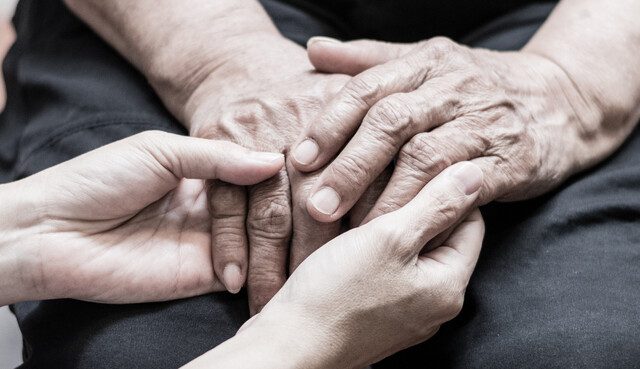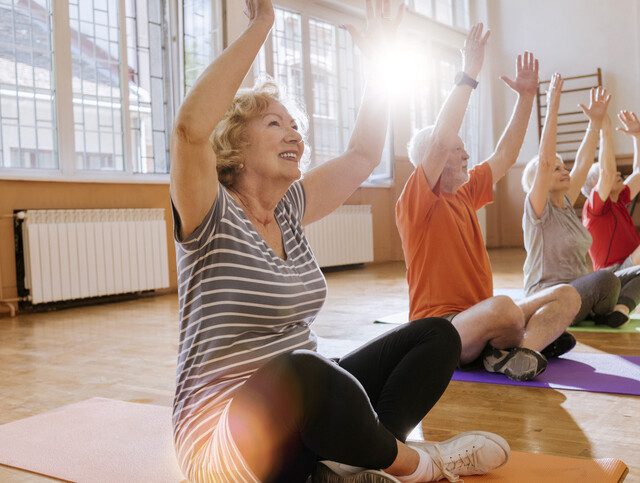In the United States, flu season tends to occur in the fall and winter months (October through February). People are also more likely to catch colds and other respiratory illnesses during this timeframe. According to the CDC, people aged 65 and older are at a higher risk of developing serious flu complications, so it’s important for this demographic to take additional precautions.
Our team here at Claridge Court, a senior living community in Prairie Village, Kansas, helped us assemble this list of simple tips for seniors to stay healthy during cold and flu season. Continue reading to learn how you can help prevent the spread of the flu and other respiratory illnesses.
1. Get Vaccinated
According to the CDC, the best way to protect against the flu and its potentially serious complications is with a flu vaccine. Vaccination reduces the risk of flu illness and also reduces the risk of hospitalization if you get sick. Because flu viruses are constantly changing, you have to get an updated flu shot every year. And while thoughts on the timing of flu vaccination vary, September and October are considered ideal months for most people to get vaccinated.
People aged 65 or older should get a higher dose or adjuvanted flu vaccine, if possible. It is also highly recommended to protect yourself against COVID-19 with a vaccination or booster. Your doctor can provide more information about what vaccines will most benefit you.
2. Stay Hydrated
Drinking water can improve your chances of preventing illness. However, staying hydrated is not as easy as it might seem. Seniors are more vulnerable to dehydration for a number of reasons. Appetite and thirst tend to diminish with age. There are some tricks to help you stay hydrated, though. Always keep a water bottle handy and seek out foods with high water content, such as soup or broth.
3. Wash Your Hands
Washing your hands regularly can help prevent the spread of respiratory infections. This is because germs can easily spread when you touch your eyes, nose and mouth. It’s also important to wash your hands properly. Use hand sanitizer when you can’t use soap or water.
4. Get More Sleep
Some people think they need less sleep as they get older. That is a myth. Older adults need about the same amount of sleep as all adults — 7 to 9 hours each night. However, older adults also can have more trouble getting to and staying asleep. Follow a regular sleep schedule, avoid napping too late in the day and develop a bedtime routine to help you get better sleep. Doing so can help your body fight off illness, as infection-fighting antibodies and cells decline when you don’t get enough rest.
5. Stay Active
Regular exercise can positively impact our physical health in many ways. It also supports emotional and mental wellbeing. Of course, you should always consult your doctor before starting any new form of exercise, especially if you’ve been inactive for a long period.
6. Avoid Large Crowds
The more interaction you have with different people throughout the cold and flu season, the more likely you are to get sick. That said, most of us still want to appreciate the holidays and spend time with friends and loved ones. Smaller gatherings are preferable to larger ones.
7. Wear a Mask
The COVID-19 pandemic normalized the use of face masks, and a medical grade face mask can help slow the spread of respiratory illnesses. Pair that with vaccination for best results. In addition, wearing a mask while sick can help protect other high risk individuals.
8. Travel Strategically
For many, the holidays involve some sort of travel. The problem with travel is that it often involves interacting with many different people, increasing your chances of getting sick. Travel by vehicle, if possible, or wear a mask when traveling in a situation with lots of unknown group exposure.
9. Keep a Calm Mind
Chronic stress can quickly take a toll on your immune system. Meditation and yoga are two proven stress reduction strategies that also offer a number of health benefits for older adults. That said, if yoga isn’t your thing, most types of physical activity can help relieve stress.
Get More Wellness Resources at Claridge Court
At Claridge Court, we take the health and wellness of our residents seriously. In addition to onsite amenities and services, our residents also enjoy access to onsite skilled nursing and rehabilitation services. Contact us to learn more about what life is like at Claridge Court, or complete the form below to tell us a little about yourself!


